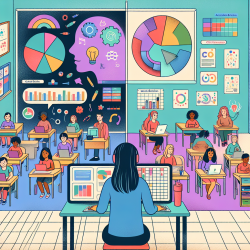Students in Small and Rural LEAs in Texas face unique challenges when it comes to accessing the resources and supports necessary to meet their needs. Roughly half of the 1,200 Local Education Agencies (LEAs) in Texas serve populations of fewer than 1,000 students. These small and rural LEAs often struggle with resource limitations and geographic remoteness, making it difficult to provide the same level of service to students with disabilities as larger districts can. The primary goal of Supports for Students Served in Small and Rural LEAs is to leverage resources and supports at the state level to provide a more effective level of access to these smaller districts. By addressing the unique challenges faced by small and rural LEAs, the aim is to ensure a more equitable level of service for students with disabilities. Here are some key activities that can support learning opportunities and improvements across the state:
- Professional Community: Creating a professional community to mentor and support teachers can help mitigate the professional isolation often experienced in small and rural LEAs. This community can offer valuable insights, share best practices, and provide a network of support.
- Instructional and Case Management Strategies: Developing strategies for managing broad responsibilities such as different age groups, settings, and student needs can help teachers and administrators effectively serve their students. These strategies can streamline processes and ensure that all students receive the attention they need.
- Collaborative Teaming: Encouraging collaborative teaming with families, shared services arrangement providers, and contractors can create a more cohesive support system for students. This collaboration can lead to better outcomes by ensuring that all stakeholders are working together towards common goals.
- Post-Secondary Transition Collaboratives: Implementing post-secondary transition collaboratives, including transportation solutions, can help students with disabilities transition smoothly from school to post-secondary education or the workforce. These collaboratives can provide the necessary resources and support to ensure a successful transition.
By focusing on these activities, we can help small and rural LEAs in Texas overcome their unique challenges and provide a more equitable level of service to students with disabilities. At TinyEYE, we understand the importance of leveraging technology to bridge gaps and provide high-quality online therapy services to schools, no matter their size or location. For more information, please follow this
link.










